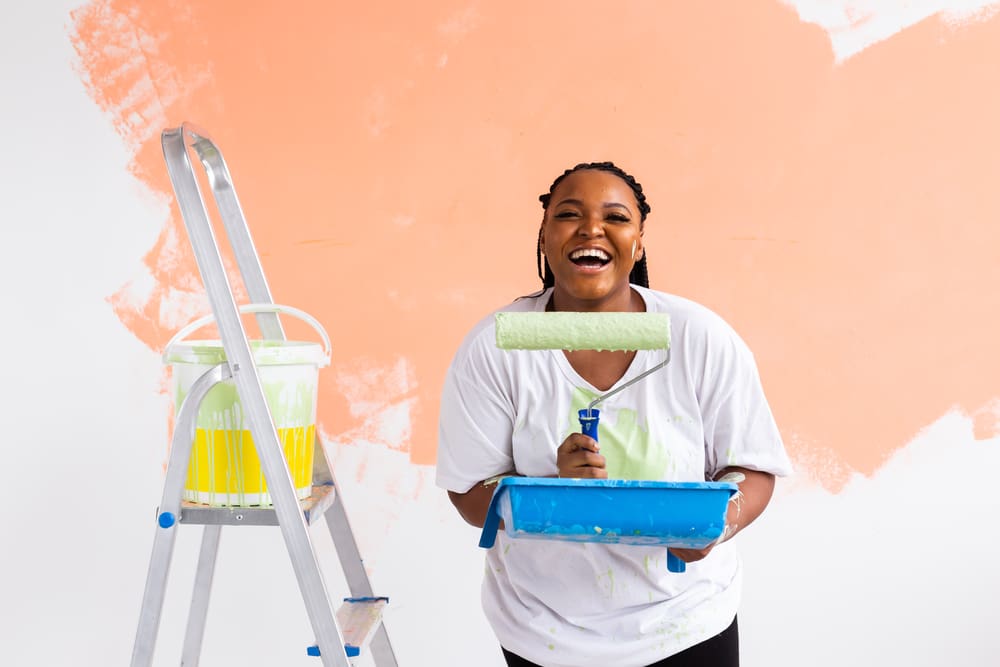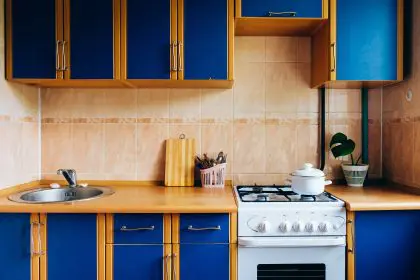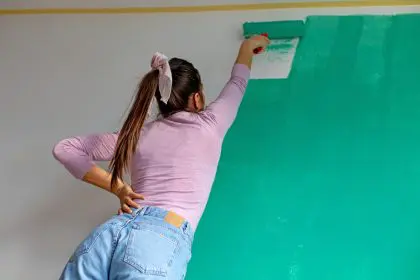Forget expensive contractors and frustrating service calls! Owning a home isn’t just about the initial joy; it’s a commitment to upkeep and improvement. But what if you could wield a hammer, not just a checkbook? Learning home improvement skills isn’t just about fixing leaky faucets; it’s about empowering yourself to save money, personalize your space and even boost your home’s value. Imagine transforming your cramped bathroom into a haven of relaxation, or adding functionality with DIY shelves made just for your needs. All this, while keeping your hard-earned cash safely in your pocket. So, grab your curiosity and let’s dive into why home improvement skills are the key to unlocking the full potential of your future home, both financially and emotionally.
1. Save money on repairs and maintenance
Minor plumbing issues, leaky faucets or electrical glitches can quickly turn into costly service calls. By learning basic troubleshooting and repair techniques, you can often fix these problems yourself, saving the expense of hiring professionals. Even simple tasks like changing air filters, cleaning drains or weatherproofing windows can prevent bigger issues down the line, further reducing repair costs.
2. Enhance your home’s functionality and comfort
A leaky faucet might be manageable, but an outdated kitchen or cramped bathroom can significantly impact your comfort and enjoyment of your home. Learning carpentry, painting or basic wiring skills allows you to personalize your space to fit your needs and aesthetic preferences. Installing shelves, painting walls or building DIY furniture can add functionality and comfort without breaking the bank.
3. Increase your home’s value
Strategic home improvements are known to boost your property’s market value. Whether it’s a bathroom remodel, a kitchen upgrade or even finishing a basement, these projects can significantly increase the selling price when you decide to move on. Learning the skills to tackle these projects yourself allows you to capture more of the added value, maximizing your return on investment.
4. Build confidence and self-reliance
There’s immense satisfaction in fixing something yourself or creating something new for your home. Learning home improvement skills fosters a sense of accomplishment and empowers you to tackle challenges independently. This newfound confidence can spill over into other areas of your life, boosting your overall self-reliance.
5. Open doors to new hobbies and income streams
Home improvement skills, once acquired, can open doors to exciting new hobbies and even potential income streams. You might enjoy restoring vintage furniture, creating handmade home decor or even offering handyman services to your neighbors. These activities can be personally fulfilling and even generate supplemental income to support further home improvement projects.
Getting started with home improvement
Whether you’re a complete beginner or have some DIY experience, here are some tips to get started:
- Identify your interests: Start by exploring areas that piqued your curiosity. Do you enjoy working with wood, paint or electrical wiring? Research projects that align with your interests and skill level.
- Seek online resources: Utilize the wealth of free information available online through tutorials, blogs and video demonstrations. Many websites offer step-by-step guides and beginner-friendly projects.
- Start small: Don’t overwhelm yourself with large-scale projects initially. Begin with simple tasks like painting a room or changing a door handle. As you gain confidence, gradually progress to more complex projects.
- Seek guidance from experts: Don’t hesitate to seek help from experienced homeowners, family members or professionals when needed. Watching local handymen work or taking a weekend workshop can provide valuable insights and practical skills.
- Invest in basic tools: Having the right tools can make a world of difference. Start with a core set of essential tools like a hammer, screwdriver, drill, and measuring tape. Gradually expand your toolbox as you tackle more advanced projects.
Forget the “honey-do” list — think “can-do” attitude! Remember, your home improvement journey is unique. Don’t compare your first wobbly shelf to a Pinterest pro’s masterpiece. Savor the satisfaction of each conquered project, big or small. Mistakes are inevitable, but they’re also stepping stones to mastery. Embrace the learning process, laugh at the occasional mishap and celebrate every accomplishment, from a perfectly painted wall to a fully functional renovation.
The benefits go far beyond aesthetics and finances. As you master new skills, your confidence will soar. Imagine the pride of fixing a dripping faucet yourself or the joy of creating a cozy reading nook tailored to your taste. You’ll become more self-reliant and empowered to tackle challenges head-on, both at home and beyond.
And who knows? Your newfound passion might even open doors to exciting new possibilities. Turning your DIY hobby into a side hustle or even a career path is not just a dream; it’s a real option. So, roll up your sleeves, embrace the journey, and remember – the key to unlocking your home’s (and your own) full potential lies in one powerful tool: your newfound home improvement skills. Happy building!
This story was created using AI technology.

















